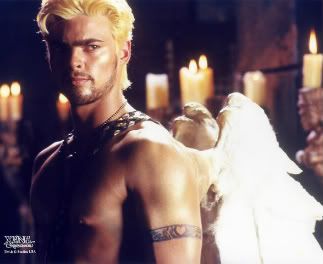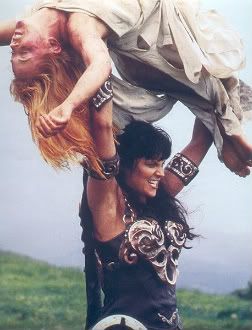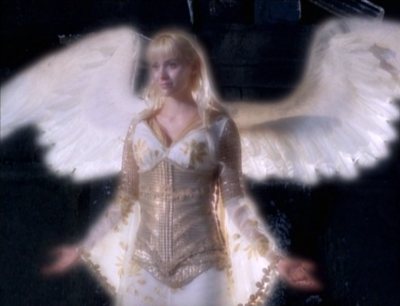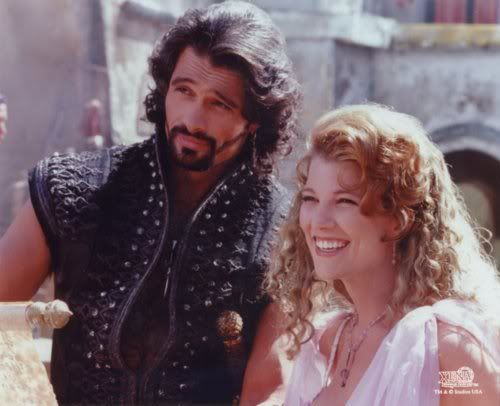Valentine’s Day is one of my favorite days of the year, and I mean that. I love checking in on my various social networking sites and looking at which topics are trending and seeing that “Valentine’s Day” is #1 and that 99% of those comments are people crying about how horrible a day it is or how we need to not talk about it all together. No other holiday—even Christmas—causes so many people to revolt and scream in anger of a single day. It amazes and confounds me, for what else in life is more deserving of celebration than Love? And I don’t just mean romantic love, but all forms of love. People are afraid to talk about love—even say the word—for fear that someone might be confused of the meaning. Perhaps it’s because in the English language there is a lot of ambiguity about love and what it can mean in a context. For example, I love my family and I love the music of Stevie Nicks, but neither in a romantic way nor in the same way. It is also possible that we live in an emotionally stunted and immature culture that fears a person may misunderstand what you meant when you said, “I love you, man!” and give your buddy a good, old-fashioned side hug.
Unlike in English, Greek has three words for love. There is “eros,” which is sexual, physical love, where we get the word “erotic”; there is “phileo”, which is friendly, nonsexual devotion, from which words like philosophy and Philadelphia find their origins; and there is “agape”, the love you hear about at weddings when they bust out the Bible and read 1 Corinthians 13 to you. Agape can apply to a lot of things—friends, family, an ideal—it’s basically the kind of love you have when you’re willing to sacrifice yourself for the continued existence of something or someone else.
I think the reason why I love Love so much is because I am, as you know, a hardcore Xenite. Always have been and probably always will be. Although when I was a kid I was much more into evil, badass Xena, and had no idea until I was in high school how campy, ridiculous and non-serious the show was. Don’t judge me, I was six and humor went over my head—some might argue that it still does—so all I saw was a badass chick and her annoying sidekick kicking ass and telling the people of Greece what for. That said, I was still being indoctrinated with the fundamental story about Xena, which surprisingly isn’t about redemption or the greater good (both fundamental quests the hero is on), but about Love.

Hello, Ladies. You can call me Cupid, though Eros would be more geographically accurate. Just call me.
Now, I’m going to say this outright: I never believed that Xena and Gabrielle were lesbians. To this day, I maintain that they are soulmates but not sexual lovers. Although I can understand where people might see that (even might have needed it to be the case in the 90s), it was never something I saw and it was only toward the end of the show that the writers and actors even admitted to the possibly of there being some sexual subtext (previously in articles and interviews it was never the case and definitely not something the creators intended) and now (possibly due to the fact that the bulk of their remaining fans are homosexual, or to a more accepting culture) some writers claim that they are “married without the stupid piece of paper”—just like at least half of the XenaCon goers who couldn’t be married because of prop 8 and other legal mumbo jumbo. As a heterosexual female, I have always been much more interested in Xena’s relationships with Ares, Caesar and Hercules. Not to say I can’t read or watch about LGBTQ characters—I am a fan!—but the fact I found Gabrielle obnoxious probably didn’t help make me want her to be romantically linked to her, either.

Can’t two straight women bathe together without anyone acting weird about it?
True story: when Gabrielle “dies” during the season 3 finale, “Sacrifice pt. 2,” I looked every day in the newspaper for casting calls for Xena’s new sidekick. You know, because that’s where I thought casting calls would be. I was 9, don’t judge me too harshly. But that’s how badly I wanted to be Xena’s sidekick and how much I thought everyone else hated her and so believed the creators offed her like Jason Todd, never to return. Come the season 4 episode “Family Affair,” I learned I was wrong. Come Judd Winick’s run on Batman and I learned I was wrong about Jason, too. Sigh, being a geek is so hard.
But this article isn’t about whether they are or they aren’t or why I hate(d) the Battling Bard of Potediea, it’s about how Xena shaped my understanding of reality and made me recognize that nothing is more important than Love and it is worthy of praise. By the way, I love the fact that a show about an ancient Greek warrior princess has the same message as hippies and flower children.
Season 4 opens with an awesome two-part episode known as “Adventures in the Sin Trade.” It’s awesome because it’s pre-reformed Xena being evil. The basic plot is that Xena goes to the Amazon’s land of the dead to talk to her gal pal. Along the way, we find out that one tribe of non-Greek Amazons (those she hung around with while she was still in power lust mode and whoring around with Borias) have been banned from entering, due to a curse laid on them by the super evil, super scary shamaness Alti (and pretty much evil Xena’s fault, too). They don’t understand it, because their holy word should have been enough:
Xena: Then maybe you need a new holy word, one stronger than the last.
Cyane: Our holy word is ‘Courage.’ Nothing’s stronger than courage.
And so it becomes Xena’s duty to undo the dark magic by fighting Alti in a literal spiritual battle. Along the way we learn that Gabrielle’s not dead, due to a dark vision of the future given by Alti where the two are nailed on crosses side-by-side. “Who’s the blonde?” Alti asks. “She represents what can defeat you,” helping Xena to discover the new holy word that will save the amazons: Love.

This is not the first, nor the last, time Love as an ideal saves the day. In the musical episode, “The Bitter Suite,” Xena and Gabrielle go on a musical odyssey to deal with the damages they have both caused in their relationship and each other (the episode actually opens with Xena hurling Gabrielle off a cliff). The third and fourth acts are a physical manifestation of the heroines’ resentment and hatred for each other—the complete destruction of their friendship from the season 2 finale to that point—playing out in musical form in the songs “War and Peace/Gab is Stabbed” and “Hate is the Star” (which seriously begins with Xena shouting, “Hatred! That’s what we’re fighting”).

But Xena, if you kill me, we’ll have to sing about it for 40 minutes!
It is only when Xena admits that she lied about assassinating Ming Tien (in the aptly titled “Yes, I Lied”), tells the deceased Solan (who is the pure manifestation of love) that she is his mother and asks for both of them to find it within their heart to forgive her that they are able to get out. And since this show is unable to be subtle about anything: when they do forgive her, the phantom manifestations of all the big bads from previous seasons explode. Xena and Gabrielle are then able to leave the musical land of Illusia and head back to Greece and continue their journeys (Solan can’t come, ‘cause he’s DEEEEEEEAD!).
So while our protagonists are learning about the magic of friendship and the importance of love, conversely our villains are out to destroy and hate. In fact, it is those villains who discover the power of love that eventually become good guys. Xena’s original archnemesis Callisto says in her eponymously titled episode, “Love is a trick nature plays to get us to reproduce.” In season 5, when archangel Xena (shut up) takes pity on her and cleanses her damned soul, she is born a new with the power of love and light and becomes an angel. And later her spirit is inserted into Xena’s womb and becomes Eve who then goes evil, but is later good after he conversion to the Xena love cult. Oh the things creative comes up with to deal with a star’s pregnancy!

Joe Starr would still tap this. Too bad he has insufficient mana.
Similarly, Ares, god of war (and sex appeal), goes evolves from heel to face over the course of the show, as his power lust wanes to a desire to be with Xena and fight by her side (“I rather die in your arms, then live without you in mine”). He may be the god of war, but it’s not as if Xena’s quest for peace and the greater good is without, you know, physical violence.

Hanging out with Lady Love herself, Aphrodite
Other characters that turn bad to good through the power of love: Markus, Draco
Characters that fail to see the light and die horribly: Velasca, Alti, Caesar, Hope
Turns out Gabrielle was right all along when she was giving those preachy speeches about love in the early seasons.\

Not bad, kid.
Love conquers all is a standard theme in storytelling. According to Tim Rice and Elton John, “Every story is a love story … All are tales of love at heart,” so even if it is not the only theme it is prime. As previously stated, not all stories of love are romantic, sexual or even between people. A girl can love her horse and their partnership leads to their fleeing oppression and coming to a new world, a man can build a baseball stadium for his love of the game, etc. What’s consistent in all these stories is that the hero loves, while the villain hates. Even if the hero starts out as bitter, he will eventually realize that he’s been wrong about this love business all along and start loving, too.
So stop being a villain when it comes to Valentine’s Day. Xena managed to overcome her hatred and animosity, so can you!